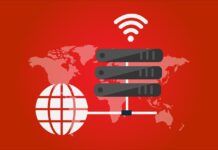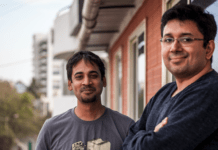According to the latest Digital Quality of Life Index (DQL) by cyber security firm Surfshark, 6 out of 10 countries holding the highest digital quality of life scores are located in Europe.
Denmark ranks 1st in DQL for the second year in a row and is closely followed by South Korea.
Finland ranks 3rd, while Israel and the U.S. round out the top five of 110 nations that were evaluated. The bottom 5 countries are Ethiopia, Cambodia, Cameroon, Guatemala, and Angola.
Regionally, the U.S. stands out as a country with the highest digital quality of life in the Americas, while South Korea takes the leading position in Asia.
Covering 90% of the global population, the DQL study is conducted by the cybersecurity company Surfshark and evaluates countries based on a set of five fundamental digital wellbeing pillars.
Among countries in Africa, people in South Africa enjoy the highest quality of their digital lives whereas Australia leads in Oceania, outperforming New Zealand in various digital areas.
In South Asia, the Digital Quality of Life Index (DQL) ranks India 59th among 110 countries.
India ranks 33rd in e-government, 36th in e-security, 47th in internet affordability, 67th in internet quality and shows the lowest result in e-infrastructure, which comes only in 91st place.
Overall, India has demonstrated a slight drop compared to DQL 2020, falling from 59th to 61st place. The country now comes 17th in Asia and 1st in the Southern Asia region. India’s e-security has improved by 76% since last year and now ranks higher than China’s.
The country outperforms Bangladesh in four digital well-being pillars but falls short on e-infrastructure – it remains India’s lowest ranking pillar, 30% worse than the global average. Additionally, mobile speed in India is one of the slowest in the world (12.33 Mbps) and the country comes only 95th in the number of individuals using the internet.
“Digital opportunities have proved to be more important than ever during the COVID-19 crisis, stressing the importance for every country to ensure fully remote operational capacities for their economies,” – explains Vytautas Kaziukonis, CEO of Surfshark.
“That is why, for the third year in a row, we continue the Digital Quality of Life research, which provides a robust global outlook into how countries excel digitally. The index sets the basis for meaningful discussions about how digital advancement impacts a country’s prosperity and where improvements can be made.”
Key Highlights:
- Broadband is globally less affordable this year. Comparing countries included in both DQL20 and DQL21, people have to work 11% more (25 min more) to afford broadband internet in 2021. However, people have to work 29% less (28 min less) to afford mobile internet this year.
- The world’s worst internet is the least affordable. People in some countries, such as Nigeria, Côte D’Ivoire and Mali require approximately a week’s worth of work to afford the internet.
- Investing in electronic infrastructure and electronic government contributes to people’s digital wellbeing the most.
The 2021 DQL research examined a total population of more than 6.9 billion people in terms of five core pillars and 14 underpinning indicators that provide a comprehensive measure.
The study is based on open-source information provided by the United Nations, the World Bank, Freedom House, the International Communications Union, and other sources.












